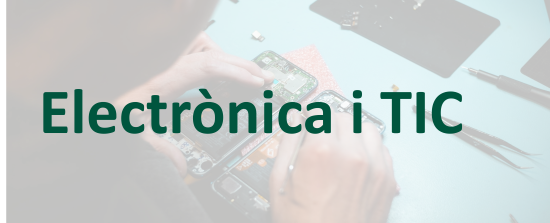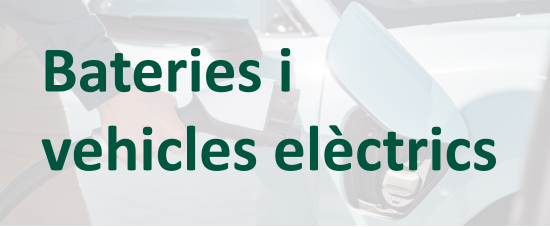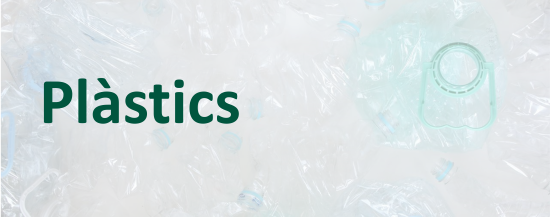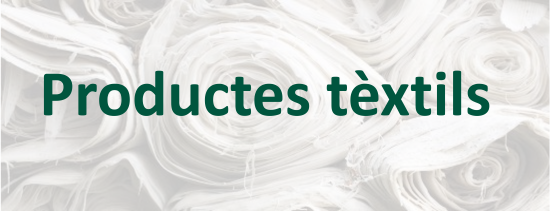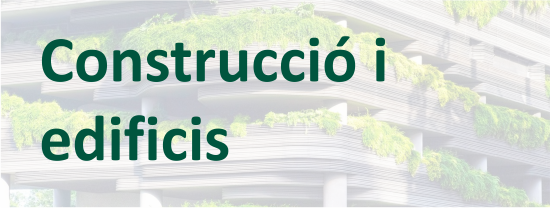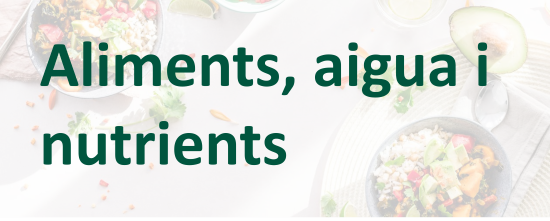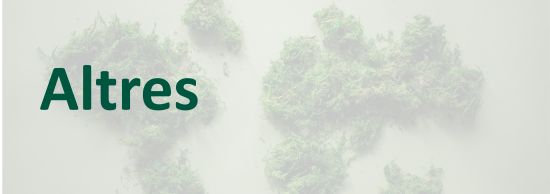|
|
 |
Newsletter de Vigilància Tecnològica
Projecte d'especialització i competitivitat territorial (PECT) emmarcat en la RIS3CAT i el PO FEDER de Catalunya 2012-2020.
El PECT "HubB30, més enllà de la circularitat" és una experiència pilot focalitzada en el Residu Zero que ha de permetre dissenyar la metodologia, l'estructura òptima i el espais per implementar un nou model d’interacció entre els diferents actors de la Quàdruple Hèlix (universitats i centres de recerca; administracions; empreses; ciutadania) i els processos d’innovació oberta.
Aquesta activitat s’emmarca dins de l’operació 7: Observatori “HUBB30 Residu 0”, i té per objectiu mostrar les iniciatives i els avenços tecnològics relacionats amb l’economia circular en aquells sectors on la Comissió Europea marca mesures concretes, segons s’indica en el Pla d’acció per la economia circular.
El projecte està coordinat per l’Ajuntament de Cerdanyola del Vallès, participat activament per l'Ajuntament de Mollet del Vallès, la Universitat Autònoma de Barcelona, el Parc de Recerca de la UAB, Fundació Eurecat i Esade, i compta amb el suport de l'àmbit B30.
|
|
|
|
|
|
|
|
|
|
|
|
|
|
|
|
|
Circular Computing is announcing the roll-out of an “industry-first” offering, Remanufacturing-as-a-Service (RaaS), to larger businesses across the UK and other geographies. Describing itself as the world’s first carbon-neutral certified remanufacturer of laptops, Circular Computing says the development is timed to tackle the growing e-waste crisis.
|
|
|
| |
|
|
|
|
|
|
Faster innovation and cross-value-chain collaboration are key to change. Bain & Company and the World Economic Forum (WEF), while building on earlier research into the impact of digital on food sustainability in nine different industries, researched areas of innovation capable of increasing the pace of change and jump-starting collaboration.
|
|
|
| |
|
|
|
|
|
|
The building industry depletes resources, generates waste and emits greenhouse gases at a tremendous scale and speed. The fragmented and risk-averse construction sector is slow to adopt digital innovation. Digital technologies serve as a prerequisite for a shift to circular constructions where building materials are reused.
|
|
|
| |
|
|
|
|
|
|
|
|
|
|
|
|
|
|
|
As the world moves toward more sustainable power systems, such as wind and solar, there is a growing need for economical, large-scale battery backup systems that can provide power when sun and wind are blocked or unavailable. Researchers at the Massachusetts Institute of Technology (MIT) have developed a new battery concept, made entirely from abundant and inexpensive materials, that could help to meet this challenge.
|
|
|
| |
|
|
|
|
|
|
Accelerating demand for renewable energy and electric vehicles is sparking a high demand for the batteries that store generated energy and power engines. But the batteries behind these sustainability solutions aren't always sustainable themselves. Scientists have now create a zinc battery with a biodegradable electrolyte from an unexpected source: crab shells.
|
|
|
| |
|
|
|
|
|
|
|
|
|
|
|
|
|
|
|
When Olive launched in 2021, it aimed to eliminate waste from online shopping by enabling consumers to order from multiple sites and get products in one reusable package. Today, the company relaunches itself in the business-to-business space to work initially with apparel retailers on establishing a circular economy that delivers clothing and accessory orders in waste-free, reusable packaging, while also making consignment easier.
|
|
|
| |
|
|
|
|
|
|
Con su diseño K3 r100, Greiner Packaging ha creado un envase sostenible cuya envoltura de cartón se separa por sí sola del vaso de plástico en su camino hacia la planta de reciclaje. Esto maximiza la capacidad de reciclaje del producto y muestra lo que es la innovación en la industria de los envases.
|
|
|
| |
|
|
|
|
|
|
|
|
|
|
|
|
|
|
|
A team of scientists has developed a system that uses carbon dioxide, CO2, to produce biodegradable plastics, or bioplastics, that could replace the nondegradable plastics used today. The research addresses two challenges: the accumulation of nondegradable plastics and the remediation of greenhouse gas emissions.
|
|
|
| |
|
|
|
|
|
|
Plastic pollution has reached unprecedented levels and it is projected to triple in the coming decades. Norway and Rwanda formed the High Ambition Coalition to End Plastic Pollution. This Coalition was initiated following the historic UN Environment Assembly resolution 5/14, passed in March 2022, to start negotiations on an international legally binding instrument to end plastic pollution. The Coalition is a group of ambitious countries working for a truly effective global treaty. This will establish common global rules, turn off the plastic tap and end plastic pollution by 2040.
|
|
|
| |
|
|
|
|
|
|
Tras la reciente publicación del informe europeo ‘Circular Economy for Plastics - A European Overview’, Plastics Europe, la asociación paneuropea de productores de plásticos, publica los datos relacionados con la Economía Circular de los plásticos en 2020, para una selección de países, entre ellos España.
|
|
|
| |
|
|
|
|
|
|
|
|
|
|
|
|
|
|
|
Bananatex® is the world’s first durable, technical fabric made purely from the naturally grown Abacá banana plants. Cultivated in the Philippine highlands within a natural ecosystem of sustainable mixed agriculture and forestry, the plant is self-sufficient, requires no pesticides, fertilizer or extra water.
|
|
|
| |
|
|
|
|
|
|
Royal Golden Eagle (RGE) is developing urban-fit, closed-loop textile-to-textile recycling solutions, through the newly-formed RGE-NTU Sustainable Textile Research Centre (RGE-NTU SusTex). This is a five-year research collaboration between RGE and Nanyang Technological University, Singapore (NTU), to accelerate innovation in textile recycling that can be deployed in urban settings. The research center will develop new technologies to recycle textile waste into fiber and create new, next-generation eco-friendly and sustainable textiles.
|
|
|
| |
|
|
|
|
|
|
|
|
|
|
|
|
|
|
|
Omlab has developed Buildmatterial 0.8, a super-circular cement-free building material from waste. With Buildmatterial, the studio 3D printed examples of emission-free construction products and explores co-operation with the industry.
|
|
|
| |
|
|
|
|
|
|
A medida que la tecnología avanza, aparecen nuevas opciones a la hora de construir. Muchas de estas tecnologías e innovaciones en la construcción contribuyen a lograr una mayor eficiencia de los materiales y la energía. Aquí se presentan dos tecnologías que se pueden combinar a la perfección: la Impresión 3D y el avance de materiales reciclados.
|
|
|
| |
|
|
|
|
|
Aliments, aigua i nutrients
|
|
|
|
|
|
|
|
|
|
|
|
|
El IRTA será uno de los participantes del proyecto Foodwaste for Foodpack, que impulsa y coordina el Packaging Cluster. A partir de los residuos orgánicos de producir alimentos se fabricará papel, cartón y/o tableros de fibra compostables, que se utilizarán para envasar alimentos.
|
|
|
| |
|
|
|
|
|
|
Potato scraps have a new purpose at sea. Dutch marine biologists recycle potato waste into mats that they use for nature restoration, like salt marshes, reefs and seagrass meadows. These Biodegradable Elements for Starting Ecosystems, or BESE-elements®, consist of stackable layers that build up into a biodegradable matrix structure. Now, worldwide applications for nature restoration have been set up with the material.
|
|
|
| |
|
|
|
|
|
|
|
|
|
|
|
|
|
|
|
There is currently no set of standardized and tested metrics for organizations to track progress on reuse. Reuse measurement and reporting remains a barrier to scale reuse models of consumption. The World Economic Forum’s Consumers Beyond Waste community of leading public and private sector actors has recommended two reuse metrics to pilot in 2023.
|
|
|
| |
|
|
|
|
|
|
Many of the ways the circular economy can create value are overlooked because it is often not seen in the context of our interconnected world and society. Recycling and circular design are not the only benefits of a circular economy: there is far broader value in terms of materials, innovation and social impact. Here are three of the most overlooked aspects, and how businesses can create value by incorporating them.
|
|
|
| |
|
|
|
|
|
|
|
|
|
|

